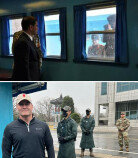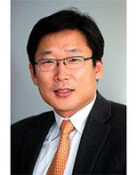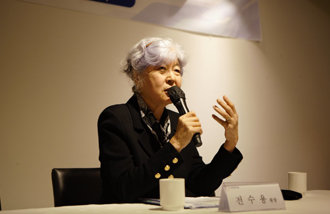Forum to Be Unofficial Channel to US
Even when an inter-Korean peace regime is established, the phrase, Permanent peace regime itself is dangerous. If the North collapses, the regime can act against the South Korean government, which faces complex issues, including the USFK, said a U.S. participant.
The level of the six party talks chief representative should be raised from the current assistant secretary level, said a South Korean participant.
On June 27, the Korea-U.S. Strategy Forum was held in Seoul. The closed forum, co-hosted by the Institute of Foreign Affairs and National Security (IFANS) and the College of William and Mary, was filled with enthusiastic debates from the participants from the two countries. There have been meetings where experts of Korea-U.S. relations discuss the pending issues of bilateral relations. However, the Korea-U.S. Strategy Forum is the first of its kind in that it is going to be held on a regular basis.
The participants were 14 experts in Korea-U.S. relations, including the chancellor of IFANS Cho Jung-pyo, former Minister of Foreign Affairs and Trade and a professor of Seoul National University Yoon Young-kwan, former director of policy planning of the U.S. State Department and the current vice president of the College of William and Mary, Mitchell B. Reiss, and a specialist for the Senate Foreign Relations Committee, Frank Jannuzi.
The ideas mentioned in the forum will be delivered to the government officials of the two countries as policy proposals.
The forum, which is planned to be held one to two times a year on a regular basis, is expected to be utilized as an unofficial channel between South Korea and the U.S.
As such, unofficial meetings between the two countries, where the bilateral parties engage in discussions and propose alternatives outside official channels, have served to remove frictions in face of sensitive issues. These meetings are called Track Two or Track 1.5 when former officials participate.
Another good example would be the Korea-U.S. Discussion Group formed by the officials of the U.S. embassy, Korean media, and think tanks of the two countries in early 2005.
The participants of the group had exchanged broad opinions on North Koreas nuclear issue and Korea-U.S. relations about once a month. However, as the North issue became deadlocked and some members returned to Washington D.C., the group lost steam.
Other examples include Club Ahrin, an unofficial monthly meeting for discussion on not only issues surrounding the Korean Peninsula, but also culture and art that celebrates the 100th meeting this coming July.
Club Ahrin is not Track Two, which deals only with bilateral relations, but is run by a member of the National Strategy Institute. Since its launch in 1994, it has established itself as one of the major meetings of foreign diplomats in Korea, which offers lectures on international issues related to Korea.
Jung-Ahn Kim credo@donga.com
Headline News
- US: Japan will double its defense budget, and so should S. Korea
- Trump's win could present opportunities for S. Korean defense firms
- ‘Don’t expand the war in Ukraine,’ Trump tells Putin
- Korean fencing men's sabre wins World Cup team event
- Yoon who should take the lead and reinvent for the second half of his term







